Search the Blog
Categories
- Books & Reading
- Broadband Buzz
- Census
- Education & Training
- General
- Grants
- Information Resources
- Library Management
- Nebraska Center for the Book
- Nebraska Libraries on the Web
- Nebraska Memories
- Now hiring @ your library
- Preservation
- Pretty Sweet Tech
- Programming
- Public Library Boards of Trustees
- Public Relations
- Talking Book & Braille Service (TBBS)
- Technology
- Uncategorized
- What's Up Doc / Govdocs
- Youth Services
Archives
Subscribe
Category Archives: Technology
E-rate/Digital World Training Days
The Nebraska Library Commission and the Regional Library Systems announce E-rate/Digital World Training Days!
There will be 2 workshops held on each date, E-rate: What’s New for 2020? in the morning and Thriving in a Digital World in the afternoon. Check-in will start a ½ hour before the morning session, with coffee and breakfast treats provided. There will be a 1 hour lunch break between the workshops – lunch is on your own. You can register for the morning workshop, afternoon workshop, or both. But, you do need to register for each workshop separately.
In addition, E-rate: What’s New for 2020? will also be offered online on Tuesday, November 5. Register for the online session
NEW DATE! November 12, 2019 – Ashland Public Library
Register for E-rate: What’s New for 2020? – 9:30am-12:30pm
Register for Thriving in a Digital World – 1:30-4:30pm
October 21, 2019 – Central Community College, Columbus
Register for E-rate: What’s New for 2020? – 9:00am-12:00pm
Register for Thriving in a Digital World – 1:00-4:00pm
October 28, 2019 – Grand Island Public Library
Register for E-rate: What’s New for 2020? – 9:30am-12:30pm
Register for Thriving in a Digital World – 1:30-4:30pm
October 29, 2019 – ESU 13, Scottsbluff
Register for E-rate: What’s New for 2020? – 9:00am-12:00pm
Register for Thriving in a Digital World – 1:00-4:00pm
Posted in Education & Training, Technology
Leave a comment
Pretty Sweet Tech: Easy Makerspace Projects
Every library should have a handful of quick and easy makerspace projects on hand. Here’s a quick list with resources for your reference:
Paper Circuits: A piece of paper, some copper conductive tape, a small battery, printable templates, and an LED light bulb is all you need to set up this project. Go to Makerspaces.com for paper circuit kits and instructions.
SparkFun also has kits and downloadable templates available.
Marble Run: Don’t lose your marbles! Just grab some craft sticks and a cardboard box to set up this fun marble maze. Frugal Fun for Boys and Girls has instructions and pictures.
Pom Pom Drop: Collect toilet paper and paper towel rolls, then grab some colorful tape and a cheap pom pom ball to make this cool project from Coffee Cups and Crayons.
Newspaper Projects: If you have some newspaper to recycle, try upcycling in these projects from Edventures with Kids!
Cardboard Loom: Try your hand at weaving with this cardboard loom from Instructables.
Microwave Ivory Soap: When in doubt, microwave your Ivory soap and watch it grow.
Check out these projects, then peruse the other projects available on these sites to find some quick and easy projects for the kids in your library!
Posted in General, Pretty Sweet Tech, Technology
Tagged Pretty Sweet Tech, stem, technology
Leave a comment
NCompass Live: Pretty Sweet Tech – Can Librarians Teach Robotics?
 Can Librarians Teach Robotics? Find out on the next FREE NCompass Live webinar, on Wednesday, September 25, 10:00am-11:00am CT.
Can Librarians Teach Robotics? Find out on the next FREE NCompass Live webinar, on Wednesday, September 25, 10:00am-11:00am CT.
New special monthly episodes of NCompass Live! Join the NLC’s Technology Innovation Librarian, Amanda Sweet, as she guides us through the world of library-related Pretty Sweet Tech.
Robots have been relatively popular in library makerspaces and after school programs. But do we really know what a robot is and why we need robots in the world? Can librarians tackle robotics? If we’re going to teach robotics, this information can be helpful. This session will cover the following topics:
- What is a robot?
- How are they being used in the world?
- Robots inspired by fiction and other fields
- Which coding concepts can be learned from a toy robot?
- Good robots to use in your library makerspace
- Pros and cons to teaching robotics in the library
I’ve been teaching Lego Mindstorms EV3 for a few years now and have learned a great deal during the process. A great deal of this presentation also comes from consulting experts in the field at conferences, reading articles from technology-based organizations like the Institute of Electrical and Electronics Engineers (IEEE), various TED talks, and a variety of other sources. Hopefully this inspires your library to pick up a robot and start playing!
Upcoming NCompass Live events:
- Oct. 2 – NO NCOMPASS LIVE THIS WEEK – ENJOY ILA/NLA/NSLA!
- Oct. 23 – Nebraska Extension’s ‘Read for Resilience’ Program
- Nov. 6 – Feeding America: Gardens, Seed Exchanges, Summer Meals, and More!
- Nov. 20 – VoteLibraries 2020 – Thinking About Elections and Libraries Without Being Partisan
 For more information, to register for NCompass Live, or to listen to recordings of past events, go to the NCompass Live webpage.
For more information, to register for NCompass Live, or to listen to recordings of past events, go to the NCompass Live webpage.
NCompass Live is broadcast live every Wednesday from 10am – 11am Central Time. Convert to your time zone on the Official U.S. Time website. The show is presented online using the GoToWebinar online meeting service. Before you attend a session, please see the NLC Online Sessions webpage for detailed information about GoToWebinar, including system requirements, firewall permissions, and equipment requirements for computer speakers and microphones.
Posted in Education & Training, Pretty Sweet Tech, Technology
Tagged libraries, NCompLive, prettysweettech
Leave a comment
Pretty Sweet Tech: Artificial Intelligence in the Library
Artificial Intelligence (AI) is powerful when it fades quietly into the background. AI-4-All, a non-profit organization with education programs for high school students, describes AI as “a branch of computer science that allows computers to make predictions and decisions to solve problems”. It’s simple, but it’s true. Ideally, AI would be used to solve problems like hunger, environment safety, safe drinking water, disease diagnosis, and crime stopping. In many cases, this is exactly how AI algorithms are used.

However, that is not how the average person is impacted by AI on a daily basis. Each day, our computers make predictions about our search terms, recommended spelling, phrasing in texts, and which products we might want to buy. Mostly the last one. The question is how these predictions are made. What factors go into the decision-making process?
Most importantly, what does this have to do with the library? Honestly, everything. Here’s a list:
- Search Engine Rankings: When library patrons Google your library, an AI algorithm is used to determine which listings appear on the list. If you want the library to appear in searches for local events, you will need to know what Google’s algorithm is looking for in your listing.
- Search Assistance: Librarians help people find information. A great deal of information is found behind search engines powered by AI. Know the tips and tricks to use Google, and find what Google can’t.
- Privacy & Security: AI is fed by mass quantities of data. That data is generated by us. Every click, search entry, map location, post and video viewed can be tracked and fed into a user profile. Libraries can help people sort out where data goes and know their rights and responsibilities to keep themselves safe in a digital world.
- Internet of Things: With devices being powered by the internet and generating more data, it is more important now than ever to lay a good foundation for data awareness and security.
- Deep Fakes & Fake News: Unfortunately, both AI and humans are generating more fake news, fake comments, and all around bad things. Help people identify fake articles, videos, and comments.
Luckily, libraries are in a good place to tackle the information world. Let’s help our communities stay safe and well-informed.
Posted in General, Pretty Sweet Tech, Technology
Tagged Pretty Sweet Tech, technology
Leave a comment
Technology and E-rate Survey

NLC is currently collecting data from Nebraska public libraries regarding technology and E-rate. If you have not yet responded to the survey, please take a few minutes (it should take around 5 minutes to complete) to submit your survey response. Your input is essential. Here is a link to the survey:
Posted in General, Library Management, Technology, Uncategorized
Leave a comment
NCompass Live: NLC Grants for 2020
Do you have a program or project you would like to see funded? Learn how to apply for the ‘NLC Grants for 2020’ on next week’s FREE NCompass Live webinar on Wednesday, September 11, 10:00am-11:00am CT.
The Nebraska Library Commission has made funding available for four grants for 2020: Youth Grants for Excellence, Internship, Library Improvement, and Continuing Education & Training. Join Christa Porter, Sally Snyder, and Holli Duggan, from the Nebraska Library Commission’s Library Development Team, as they provide an overview of the grants, including eligibility requirements, the application process and grant review, timelines and deadlines. They will also share some tips on writing effective grants.
Upcoming NCompass Live events:
- Sept. 18 – Coretta Scott King Book Awards: 50 Years Strong
- Sept. 25 – Pretty Sweet Tech – Can Librarians Teach Robotics?
- Oct. 2 – NO NCOMPASS LIVE THIS WEEK – ENJOY ILA/NLA/NSLA!
 For more information, to register for NCompass Live, or to listen to recordings of past events, go to the NCompass Live webpage.
For more information, to register for NCompass Live, or to listen to recordings of past events, go to the NCompass Live webpage.
NCompass Live is broadcast live every Wednesday from 10am – 11am Central Time. Convert to your time zone on the Official U.S. Time website. The show is presented online using the GoToWebinar online meeting service. Before you attend a session, please see the NLC Online Sessions webpage for detailed information about GoToWebinar, including system requirements, firewall permissions, and equipment requirements for computer speakers and microphones.
Pretty Sweet Tech: Tech Communities Need

Did you ever wonder what the tech is happening in the world? The thought crosses my mind often, but that may be a hazard of the trade. Technology is piling up faster, but what actually matters to us and our communities? How can technology be used as a tool to help people?
Why Would People Want to Learn?
The best place to start is to look at your community demographics. Are there more high school students, or older adults? Are adults trying to build skills for a changing future? Which technology do people already use? Is technology being used effectively?
When you have a better idea of who your library is serving, dig deeper into why technology is necessary. Here are some possibilities:
- Do people want to build professional development skills?
- Which professions are most common in the area?
- Do parents want to learn how to help their kids?
- Do people want to use digital tools for work?
- Is your community using tech tools to improve public services?
We have reached a point where technology has extended to the full power of the internet. We use our devices to communicate, shop online, manage finances, learn new skills, create new content, share ideas, and more. Not everyone needs access to every corner of the World Wide Web. But the people who know what’s possible will thrive in a digital world.
So What is Possible?
Too much is possible. Trying to gather everything under the sun is an exercise in futility. The internet can do a paralyzing number of things.
Start by narrowing focus on one demographic and technology need at a time. Consider these examples:
Demographic 1: Parents helping kids use smartphones responsibly
Possibilities: Look at screen time balance, device safety and security, online predators, and learning how to learn online.
How Libraries Can Help: Gather digital literacy resources, including articles, infographics, and posters. Set up parent discussion groups with informational handouts. Possibly work with the local school to help parents keep up with changing technology.
Demographic 2: Adults who have been in the workforce, but want to learn new technology to keep current.
Possibilities: As technology grows more complex, people who did not have access growing up, or were not previously interested may wish to be exposed to new technology. Jobs may require new exposure as well.
How Libraries Can Help: Connect adults with resources to learn about emerging technology trends. Deloitte and Gartner’s Trends are good places to start. When people know what exists, they can decide for themselves if it is relevant to their current needs. Potentially, try a makerspace for interested patrons.
So What Does this Mean?

If you were looking for a one-size-fits all solution, I can’t give you one. It doesn’t exist. Technology is going to keep on changing, and we will all have to adapt as it happens. Apps and devices will change, but the underlying concepts will remain the same.
What are these concepts? Privacy and security concerns, communication skills, creative application of ideas, flexible learning and unlearning, online finance skills, cooperative learning, and staying healthy and well in a digital world. Those skills will extend outward to every bit of technology.
Posted in General, Pretty Sweet Tech, Technology
Tagged Pretty Sweet Tech, technology
Leave a comment
Pretty Sweet Tech: How Do People Find Your Library?
 Last weekend, I was looking for something new to do in the area. I grabbed my phone and searched for “events in Lincoln”. The downtown Haymarket website popped up, so did EventBrite, Meetup.com, the local newspaper, and the city of Lincoln website. That made me wonder, how do people find library events? Technology has changed the landscape here.
Last weekend, I was looking for something new to do in the area. I grabbed my phone and searched for “events in Lincoln”. The downtown Haymarket website popped up, so did EventBrite, Meetup.com, the local newspaper, and the city of Lincoln website. That made me wonder, how do people find library events? Technology has changed the landscape here.
I’ve also gotten several questions recently about advertising events on the Nebraska Libraries on the Web sites. Often times we only put our events on the library website, or on flyers posted around the library. But that limits the number of people in the community who will consistently see event marketing. Only frequent library-goers will likely know about the event. Our library events have always competed for people’s time and attention. With the ease of finding events online, that competition has increased considerably.
What Can Libraries Do?
Start p osting your events in multiple locations. Where do you and your staff go to find local events? Ask around to find out which websites people of different age groups are currently using. If attendance is low, it may be time to start advertising like the “competitors”.
osting your events in multiple locations. Where do you and your staff go to find local events? Ask around to find out which websites people of different age groups are currently using. If attendance is low, it may be time to start advertising like the “competitors”.
Does this Cost Money?
Many of these sites allow local businesses and organizations to post for free. Meetup.com sounds like a dating website, but it is actually a great place to advertise local events, book club meetings, and community gatherings. Meetup.com has a $15 a month fee for organizers so it may not be worth it for a few events. However, if you can share costs between other city organizations, and Meetup.com is already known to be popular in your town, it may be worth the cost sharing!
Google Your City Events
Open the common search engines (Google, Bing, DuckDuckGo, etc.) and search for events in your city. What did you find? Reach outside the library walls to let your community know what’s up and coming in your library. You can use the same advertising graphics and wording across multiple websites to save time. This can especially come in handy if you go through Nebraska Libraries on the Web. Check that out if you’re a Nebraska library and want to start a new website or revamp your existing site.
Pretty Sweet Tech: Mobile Device Safety Resources
 Mobile and general online security has been a concern for many. This post points out two great resources for online and mobile security.
Mobile and general online security has been a concern for many. This post points out two great resources for online and mobile security.
1. The Federal Trade Commission put together this Smartphone Security Checker to help people ensure their own mobile safety. This tool will allow you to select your mobile operating system, then pull up a list of ten detailed safety tips and tricks. The available operating systems are Android, Apple iOS, BlackBerry, and Windows Phone.
How libraries can use this tool:
- Incorporate the tool into one-on-one device training sessions.
- Provide a printed handout at the reference desk
- Train staff to practice using the tool with different operating systems to better assist patrons in the future
- Update library devices to use some of these security measures
- Update your personal device safety measures
2. The Federal Trade Commission also put together a great tool to Recover from Identity Theft. Unfortunately, identity theft is now relatively commonplace. In some cases the theft extends to only credit card information and can be remedied by calling the bank, cancelling the card, and trying to reverse any charges that may have gone through.
In other cases, the identity thief may have gotten hold of social security numbers. If the thief was able to use the information, the victim may have a bigger problem.
This tool works sort of like a reference interview. The system asks a series of questions to find out what happened and learn more about the context of the situation, then connects the user with appropriate resources. The tool is designed to build a customized plan to recover from various degrees of identity theft or compromised information.
How libraries can use this tool:
 People have a tendency to seek information only when they have an immediate information need. This is one tool we hope nobody ever needs. However, it can be helpful to have a brochure available at the reference desk to let people know the tool exists. Victims of identity theft can be in a vulnerable place and may not always know the right questions to ask in the moment.
People have a tendency to seek information only when they have an immediate information need. This is one tool we hope nobody ever needs. However, it can be helpful to have a brochure available at the reference desk to let people know the tool exists. Victims of identity theft can be in a vulnerable place and may not always know the right questions to ask in the moment.
This is also a good tool to bring up during device training, computer and internet use assistance, and other technology training. It’s better to be safe than sorry when it comes to identity theft.
Hopefully these tools come in handy in your library. In the case of identify theft, hopefully nobody ever has a need!
Posted in General, Pretty Sweet Tech, Technology
Tagged digital literacy, Pretty Sweet Tech, technology
Leave a comment
Pretty Sweet Tech: Data Breaches and Data Brokers, Oh My!
 Today, we talk about data brokers. They’re part of the reason Best Buy ads keep chasing me around the web. These are the organizations running behind the scenes of marketing, government data pools, identity verification services, background checks, and so much more.
Today, we talk about data brokers. They’re part of the reason Best Buy ads keep chasing me around the web. These are the organizations running behind the scenes of marketing, government data pools, identity verification services, background checks, and so much more.
There are over 4,000 data broker companies worldwide, but we’re going to look at Acxiom, one of the world’s largest data brokers. This is the power of information today. Currently, Axciom has global data in over 60 countries, has information about over 2.5 billion people, and their website boasts over 10,000 attributes about each individual person.
Honestly, this would probably make marketers salivate. Those little information nuggets are solid gold for data miners everywhere. But it’s not the information that matters, it’s how you use it that counts. Data brokers scrape information from public records, purchase data from companies, then clean, analyze, repackage, and license clean data to companies.
First we’ll look at the type of information these brokers collect in their 10,000+ attributes, then we’ll explore how it is analyzed and used in real life.
Type of Information Collected (from Axciom’s website):
- Individual Demographics (ex. age, gender, ethnicity, education, occupation)
- Household Characteristics (ex. occupants, number/age of children)
- Financial (ex. income ranges, net worth, economic stability)
- Life Events (ex. marriage, divorce, new children, moving)
- Interests (ex. sports, leisure, pets, entertainment)
- Buying Activities (ex. purchase history, method of payment)
- Behavior (ex. community involvement, causes)
- Major Purchases (ex. home buying, cars, property, technology)
How do they know life events and interests? Social media is one way. Looking at Facebook’s website, they have a marketing insights page for businesses. Facebook deep dives into your social media activity, tracks keywords in posts, and knows all your major life events. Then they sell it to data brokers, or directly to companies. Data brokers then take this information, and resell it to more companies. Facebook isn’t the only one.
How is the Information Used?
 There are four major categories of how your information is being used:
There are four major categories of how your information is being used:
- Marketing and Advertising (ex. online ads, emails)
- Fraud Detection (ex. verification of identify for a loan by a bank)
- Risk-Mitigation (ex. can track overspending, or health stats to determine eligibility for health insurance or financial loans)
- People-Search Sites (used for background searches for landlords, employers, curious friends/ family, or anyone who wants to pay to see your history)
What About Data Breaches?
Sometimes this information gets into the wrong hands. Hackers get into large pools of information all the time in data breaches. No company is ever completely safe from a data breach. That is like saying the Titanic is unsinkable.
Did you ever think about where your information goes when you go online? We still had a digital footprint before the internet exploded. Companies still tracked your purchases and interests, but now they can do it more efficiently. Consider what you want people to know about you online.
Posted in General, Pretty Sweet Tech, Technology
Tagged Pretty Sweet Tech, technology
Leave a comment
The 2020 Census : Confidentiality, in English and Spanish
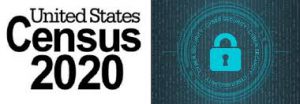 When you trust the Census Bureau with your information, their goal — and legal duty — is to keep it safe. Their mission is to serve as the nation’s leading provider of quality data about its people and economy. They couldn’t produce this information without you.
When you trust the Census Bureau with your information, their goal — and legal duty — is to keep it safe. Their mission is to serve as the nation’s leading provider of quality data about its people and economy. They couldn’t produce this information without you.
Their privacy principles guide their actions so that they respect your privacy and
protect your confidentiality.
• They do not identify individuals in the data
• They can only publish statistics.
• Their Disclosure Review Board verifies that any data product
we release meets our confidentiality standards.
From the beginning of the data collection process through the final storage of
information, they protect your data following industry best practices and federal
requirements. They use data encryption and two forms of authentication to secure
system access. The security of their systems is a top priority and they continually refine
their approach to address emerging threats.
The information bulletin below is available in English and Spanish, and can be printed out as a handout or a poster.
2020 Census : Four Ways to Respond
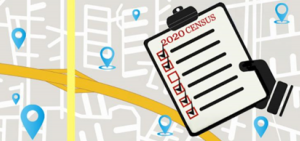 There are changes to the 2020 Census that will make it easier than ever for everyone to respond. The information bulletin below gives the 4 ways people can answer the Census questions, and can be printed out as a handout or a poster.
There are changes to the 2020 Census that will make it easier than ever for everyone to respond. The information bulletin below gives the 4 ways people can answer the Census questions, and can be printed out as a handout or a poster.
2020 Census : Counting Young Children, What You Need to Know
 The 2020 Census: Counting everyone once, only once, and in the right place.
The 2020 Census: Counting everyone once, only once, and in the right place.
An estimated 5% of kids under the age of 5 weren’t counted in the 2010 Census. That’s about 1 million young children, the highest of any age group. We need your help closing this gap in the 2020 Census. The information bulletin below tells us what research has discovered about why young children are missed and what you can do to help make sure they are counted. The information bulletin can be printed out as a handout, or as a poster:
Census 101 : What You Need to Know, in English and Spanish
 The 2020 Census is closer than you think! Here’s a quick refresher of what it is and why it’s essential everyone is counted.
The 2020 Census is closer than you think! Here’s a quick refresher of what it is and why it’s essential everyone is counted.
¡El censo del 2020 está más cerca de lo que piensas! A continuación te damos un
rápido repaso de lo que es y por qué es esencial que todos seamos contados
The information page below can be printed out as a handout or a poster:
Pretty Sweet Tech: Where Can Patrons Learn Tech Skills?
 There’s a question that keeps coming up in makerspaces: how can we help patrons learn the higher level skills they want to learn? A lot of times, people come in to practice using the entry level tools, but want to learn more. Technology is moving quickly. This is a time for life-long learning.
There’s a question that keeps coming up in makerspaces: how can we help patrons learn the higher level skills they want to learn? A lot of times, people come in to practice using the entry level tools, but want to learn more. Technology is moving quickly. This is a time for life-long learning.
Imagine This Scenario:
Someone walks into the library who already has their bachelors degree and has no desire for more student loans. They want information about where to go to learn new technology skills. How would you answer? This could be a pretty common question soon.
How I Would Answer:
Part of what I do is what I call the “technology reference interview”. This is a way to narrow down just exactly what the patron wants to accomplish. Do they want to be able to complete one project as a hobby, or pick up a new skill to use at work? How will they prove they learned the new skill, and will they require written proof from an organization? This takes practice, just like learning how to ask the right questions to recommend books.
The Resources:
For a hobby, try tutorials on YouTube, or audit a free micro-credential. These are short courses offered by universities and other organizations to help support life-long learning. Some of these are advertised as free courses to audit, others are paid right off the bat. Those needing certification can pay for a micro-credentials or certification that is often cheaper than a standard degree, and can be done over time. Here are some options:
- Udacity: This is great for learning coding skills from different categories, from beginner to advanced. This site is mostly paid courses or varying lengths. A small selection of the courses they partnered with Google to create are offered for free. Overall, courses can be taken individually or in an over-arching micro-degree program.
- Udemy: This is more of a crowd-sourced course platform. It will also help people learn coding skills from beginner to advanced. Some courses are made by professionals, others are made by people who are just getting started. Check out the reviews on individual courses, and watch the preview of the course. Make sure the learning style used in the courses meshes with how you learn.
- EdX: Many of these courses were put together by Harvard, MIT, or other top universities. They cover a range of topics from how to leverage technology in business, to robots in society, to artificial intelligence in everything. Some learners like the learning style from EdX, others like Udacity or Udemy more.
- Coursera: This site is pretty similar to EdX. The courses are mostly made by universities and many offer free auditing. With an audited course you won’t get the graded assignments, but you do have access to learning resources.
- FutureLearn: This is a mix of universities from around the world, and varying organizations for an alternative learning approach. The Raspberry Pi Foundation offers several courses tied to their product on this site.
Long story short, there are plenty of options. Encourage people to shop around, audit courses and find a site and instructor style that works for them personally. The resources exist to learn the skills, it just takes time and patience to learn. I would include the disclaimer that not all organizations, workplaces, industries, or higher education institutions accept micro-credentials. It’s a shifting and growing field, but for building new skills, they can be awesome.
Posted in General, Pretty Sweet Tech, Technology
Tagged Pretty Sweet Tech, technology
Leave a comment
EBSCO Database Trial
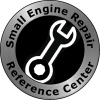 EBSCO is offering Nebraska libraries trial access to three databases beginning August 1 and running through October 27, 2019.
EBSCO is offering Nebraska libraries trial access to three databases beginning August 1 and running through October 27, 2019.
Databases available for trial include:
- Hobbies & Crafts Reference Center
- Home Improvement Reference Center
- Small Engine Repair Reference Center
Trial access instructions (URL, username, password) were distributed via an August 1, 2019 message to the Trial mailing list. Nebraska librarians who didn’t receive this information, or who would like to have it sent to them again, may contact Susan Knisely.
To request a price quote, contact Susan Knisely at the Nebraska Library Commission. Please indicate which of the three databases you are interested in.
*** Note: Not all trial announcements are posted to this blog. If you are a Nebraska librarian and you’d like to receive future database trial announcements directly in your inbox, please make sure you are signed up for the Nebraska Library Commission’s Trial mailing list.
Posted in Information Resources, Technology
Leave a comment
July 4th Fun Facts–Celebrating 243 Years of Independence!
 As the nation celebrates this Independence Day, it’s a good time to reflect on how our Founding Fathers enshrined in our Constitution the importance of statistics as a vital tool for measuring people, places and economy.
As the nation celebrates this Independence Day, it’s a good time to reflect on how our Founding Fathers enshrined in our Constitution the importance of statistics as a vital tool for measuring people, places and economy.
Who was the first signer of the Declaration of Independence?
Is there a U.S. county named Independence?
What was the nation’s population in 1776?
Answers:
- John Hancock, a merchant by trade, was the first to sign the Declaration of Independence.
- The only county named Independence is in Arkansas.
- The U.S. population was 2.5 million in 1776. It is more than 130 times larger today at 330 million
The following statistics — historical and whimsical — come from responses to U.S. Census Bureau surveys:
- In July 1776, an estimated 2.5 million people lived in the 13 colonies (Series B 12 table below). According to recent projections, there are 330 million residents as of July 1, 2019 (Projections for the United States: 2017-2060, Table 1 below).
- The oldest signer, at age 70, was Benjamin Franklin of Pennsylvania. Franklin County, Pa., had an estimated population of 154,835 on July 1, 2018. There are 24 counties named Franklin in the United States.
- The youngest signer, at age 26, was Edward Rutledge of South Carolina. There are no counties named Rutledge.
- Speaking of county names, there are four counties named Liberty (Florida, Georgia, Montana, Texas) and 18 counties and one parish named Union.
- $368.6 million worth of fireworks were sold in 2012 through establishments classified as NAICS 453998 and all other miscellaneous retailers (except tobacco stores).
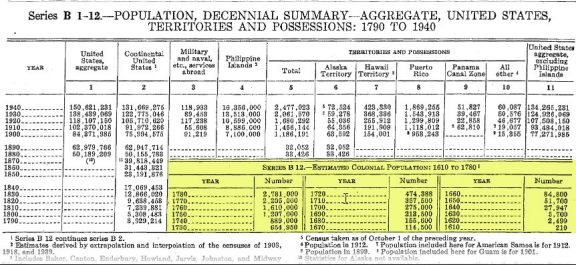

More Fun Facts 
The Census Bureau’s Statistics in Schools program has created this Fun Facts & Teaching Guide for the Fourth of July.
Teachers can interact with students by using fun but real-life data related to the holiday. The teaching guide offers ideas on how to use these facts as an activity.
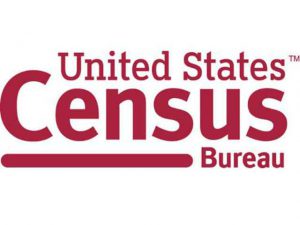
NCompass Live: Pretty Sweet Tech – Enhance Your Online Security with Password Management Tools
 Learn how to ‘Enhance Your Online Security with Password Management Tools’ on the next FREE NCompass Live webinar, on Wednesday, July 3, 10:00am-11:00am CT.
Learn how to ‘Enhance Your Online Security with Password Management Tools’ on the next FREE NCompass Live webinar, on Wednesday, July 3, 10:00am-11:00am CT.
New special monthly episodes of NCompass Live! Join the NLC’s Technology Innovation Librarian, Amanda Sweet, as she guides us through the world of library-related Pretty Sweet Tech.
Password Management Tools can help you keep your passwords straight, develop strong passwords, and make it infinitely more difficult for hackers to get ahold of your sensitive information. This session will cover the following topics:
- What are the main threats to my online security?
- How can I prevent this from happening?
- Examples of good online password security
- A demonstration/ overview of LastPass Password Manager
You’ll also have access to a handout with lots of handy information to keep patrons informed about their online security options.
Upcoming NCompass Live events:
- July 10 – Fun, Easy, and Inexpensive Teen Nights (aka After Hours)
- July 17 – ACRL Outcome Measurement Made Easy: Project Outcome for Academic Libraries
- July 24 – The Golden Sower Award: Nebraska’s Children’s Choice Literary Award
- July 31 – How Does Your Library Garden Grow?
- Aug. 7 – Life in Fort Schuyler: The Challenges Faced at the SUNY Maritime College Library
- Aug. 14 – Pretty Sweet Tech
- Aug. 21 – Research – the Key to Library Design
- Aug. 28 – Eliminating Late Fines is a Win-Win for Your Library and Community
 For more information, to register for NCompass Live, or to listen to recordings of past events, go to the NCompass Live webpage.
For more information, to register for NCompass Live, or to listen to recordings of past events, go to the NCompass Live webpage.
NCompass Live is broadcast live every Wednesday from 10am – 11am Central Time. Convert to your time zone on the Official U.S. Time website. The show is presented online using the GoToWebinar online meeting service. Before you attend a session, please see the NLC Online Sessions webpage for detailed information about GoToWebinar, including system requirements, firewall permissions, and equipment requirements for computer speakers and microphones.
Posted in Education & Training, Pretty Sweet Tech, Technology
Tagged libraries, NCompLive
Leave a comment
Pretty Sweet Tech: Podcasting Basics
 Have you ever considered a library-hosted podcast? With the right equipment, you could help patrons record and edit local podcasts and link them to your library’s website! Topics could range anywhere from book and movie reviews to local/ state history, and anything in between! Read on to learn how you can make this happen in your library:
Have you ever considered a library-hosted podcast? With the right equipment, you could help patrons record and edit local podcasts and link them to your library’s website! Topics could range anywhere from book and movie reviews to local/ state history, and anything in between! Read on to learn how you can make this happen in your library:
What is a Podcast?
Podcasts are audio recordings that are geared towards providing new information, entertainment, or asking listeners to look at topics from a different point of view. Podcasts can have a single host/narrator, have a more conversational format between multiple hosts, or be an interview between host and guest. There’s no one right way to podcast!
How Can We Plan a Podcast?
There are a ton of resources out there for how to plan and record your own podcast. I’ll put a few pointers that have worked for some other libraries here, then add some additional resources at the end of the list:
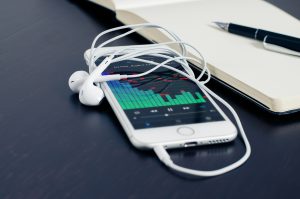 Target Audience: Try to anticipate who your target audience is. You don’t want to use teen slang for a podcast about retirement getaways!
Target Audience: Try to anticipate who your target audience is. You don’t want to use teen slang for a podcast about retirement getaways!- Length: Start asking potential listeners how long they like their podcasts. If your listeners only have time for 15 minutes, don’t record an hour long podcast!
- Topic: Start listening around. Find out which podcasts exist about your preferred topic. Listen for what works and what doesn’t work for you.
- How to Record: Some hosts record all in one, long segment. Others record in short bursts and stitch the sections together. Short bursts leave room for error.
- Ad Lib or Script? Some hosts plan their show down to the last word. Others wing it. It’s really up to your comfort level. Kids and teens might need structure.
- Where to Host? Think about what you need to be able to do with your recordings when you’re done. Some hosting options like Lisbyn have editing features and will help you sync the podcast to your website. But it can cost a bit. Podbean is an option if you want to start with free and grow. Free doesn’t have as much functionality, but everybody starts somewhere!
Here are some start to finish guides for planning a podcast:
- The Podcast Host: Podcast Scripting: How Do I Write a Podcast Script?
- Shopify: How to Start a Podcast: (for Under $100)
- The Podcast Host: How to Start a Podcast in 18 Steps
- The Podcast Host: Best Podcast Equipment: Your Ultimate Guide
As you can see, pretty much everything you need is on The Podcast Host. They know all, and I’ve used a lot of their stuff when learning how to use our makerspace audio kit stuff. Happy podcasting everyone!
Posted in General, Pretty Sweet Tech, Technology
Leave a comment
Census Bureau Announces 2019 Census Test to Begin
 The U.S. Census Bureau has announced that the 2019 Census Test has begun, as approximately 480,000 housing units across the country receive a questionnaire testing the operational effects of including a citizenship question on the 2020 Census. The 2019 Census Test will randomly assign households to two panels and ask them to respond to the 2020 Census questions. Panel A will include the question on citizenship, Panel B will not. Findings from the nationwide test will assist in determining updates to 2020 Census operations, such as how many census takers are needed to follow up with nonresponding households and how to better communicate with households about the 2020 Census.
The U.S. Census Bureau has announced that the 2019 Census Test has begun, as approximately 480,000 housing units across the country receive a questionnaire testing the operational effects of including a citizenship question on the 2020 Census. The 2019 Census Test will randomly assign households to two panels and ask them to respond to the 2020 Census questions. Panel A will include the question on citizenship, Panel B will not. Findings from the nationwide test will assist in determining updates to 2020 Census operations, such as how many census takers are needed to follow up with nonresponding households and how to better communicate with households about the 2020 Census.
Posted in Census, Education & Training, General, Information Resources, Technology, Uncategorized, What's Up Doc / Govdocs
Tagged census
Leave a comment

